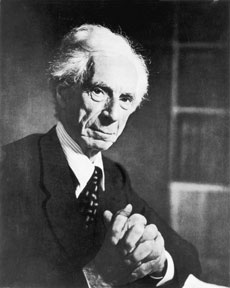The philosophical sense of wonder
 All humanity is
sick. I come, therefore, to you as a physician who has diagnosed this
universal disease and is prepared to cure it. All humanity is
sick. I come, therefore, to you as a physician who has diagnosed this
universal disease and is prepared to cure it.
- The Buddha
Most of us have a sense of wonder. We treat many things such as
heaven, paradise or Utopia with a sense of wonder because they are
beyond our sensory perception. On a lesser scale, we are overwhelmed by
a sense of wonder when we see a cascading waterfall, great reservoir or
massive construction such as the Great Wall of China. Children too have
a sense of wonder when they are in a carnival or riding a bicycle for
the first time.
Plato and Aristotle, two great philosophers who lived in ancient
Greece, believed that questions must be asked and answered anew by each
culture by any person who awakens to what they called the philosophical
sense of wonder. Most of us may not fit into this category of people who
ask philosophical questions. The rare breed of philosophers has been
asking some age-old questions and trying to answer them as far as they
could.
 |
|
Bertrand Russell: Philosophy is to be
studied not for the sake of any definite answers... but
rather for the sake of the questions themselves |
Some of the philosophical questions are concerned with metaphysics
which is sometimes referred to as the “ultimate reality.” Metaphysics
raises questions about reality that go beyond sensory experience. In
certain situations, it goes beyond ordinary science. Metaphysical
questions involve the mind-body relationship, supernatural phenomena,
existence of God, morality and the meaning of life.
Epistemology
Epistemology, a branch of philosophy, asks questions about knowledge,
nature and origins. Epistemological questions revolve around truth,
belief, sources of knowledge, memory and perception. Ethics, another
primary area of philosophy, encompasses the study of moral problems such
as What is virtue? What is good and bad? Do we have a moral duty?
Over the past few centuries, ethics has branched into other areas
such as business, journalism, medicine, environment and law. On the
other hand, social and political philosophy are concerned with the
origin of the state, sovereignty, executive power, ethnicity, gender and
social status. Other important areas of philosophy include logic or the
study of the rules of reasoning; axiology or the study of values;
aesthetics or the study of perceptions, feelings, judgements and ideas
associated with the concept of beauty.
A few decades ago, an attempt was made by the educational authorities
to introduce philosophy into the school curriculum by teaching ethics
and logic. Most students offered the two subjects at the Advanced Level
examination. Even if they did not pursue higher studies in philosophy,
they had a taste of it. Some smart Alec axed ethics from the Advanced
Level syllabus and today only logic remains as a subject.
Ethics
Those who studied ethics and logic at the feet of committed teachers
invariably developed a philosophical sense of wonder. They were
fascinated to learn of sages in the West and the East. In the Bible,
they came across prophets who were people of great wisdom, They looked
up to philosophers with awe. However, ancient philosophers ceased to
attract the student population with the advent of science and
technology. For instance, a modern student may scoff at philosophy
calling it a “useless subject.”
With all the achievements in the sphere of science and technology,
can we do away with philosophy and philosophers? Certainly not. A modern
science student may ask, “Is all this philosophy useful?” Renowned
philosopher and historian Will Durant says it is a “shameful question”
because we do not ask the same question about poetry. For that matter,
poetry reveals the beauty our eyes have missed. Similarly, philosophy
gives us wisdom to understand the world.
On the flip side, philosophy is somewhat unattractive and
unprofitable. It will not make us rich or famous. It may sometimes make
people angry with philosophers who ask unpalatable questions. Does it
mean that we should remain naive or unmindful of philosophical
questions? Those who are bent on living in luxury, amassing wealth for
the next generation, may not pause to think whether they are chaotic in
desire and blindly miserable.
Harmony
If we teach the young the value of philosophy, they will remain
faithful to it even in their adult life. Philosophy will give them the
healing balm of social unity, harmony in life and a sense of wonder no
other subject can give.
Bertrand Russell in The Problem of Philosophy says, “Philosophy is to
be studied, not for the sake of any definite answers to its questions,
since no definite answers can, as a rule, be known to be true, but
rather for the sake of the questions themselves: Because these questions
enlarge our conception of what is possible, enrich our intellectual
imagination and diminish the dogmatic assurance which closes the mind
against speculation.”
One of the major themes in ancient philosophy is the search for
general human excellence or virtue. The Greek word for virtue arete
means excellence which is associated with potency and functionality.
A.M.G. Sirimanne, who taught Western Classical Culture to degree
students, always referred to arete which might appear to be Greek to
those who do not have even a nodding acquaintance of philosophy! |

